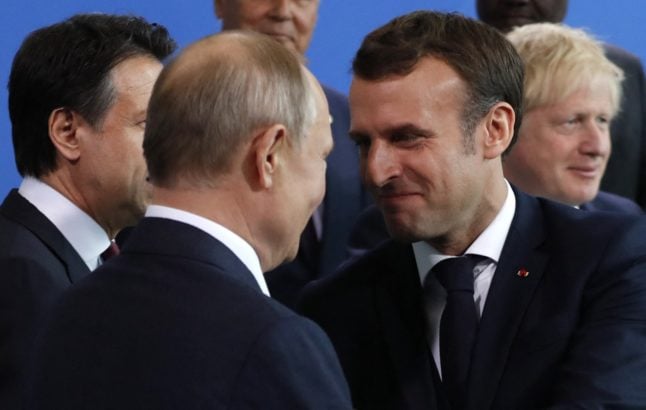Emmanuel Macron used to fancy himself as a lion-tamer.
There wasn’t a murderous dictator or mendacious populist that the French President would not try to charm: Vladimir Putin, Donald Trump, Boris Johnson, Narendra Modi, Recep Tayip Erdogan, Victor Orban.
The results, overall, have been poor. Sometimes Macron has been eaten, diplomatically-speaking. Years of trying to smooth-talk Vladimir Putin – with invitations to Versailles and the presidential retreat at Fort Brégancon and the long-table talks in the Kremlin – ended in disillusion and humiliation.
Macron’s attempts to create a blokeish friendship with Boris Johnson ended in cross-Channel exchanges of insults and accusations. His mission to find a core, reasonable Donald Trump ended in the discovery that there was no reasonable Donald Trump, just a self-obsessed, shallow deal-maker or deal-breaker.
And now President Xi Jinping of China. The two presidents and their wives are on an away-day to the French Pyrenees (Tuesday), visiting a region dear to Macron since his childhood.
The first day of Xi’s French state visit in Paris yesterday seems to have produced very little. The Chinese president promised to send no arms to Russia but that is a long-standing promise that he has, technically-speaking, kept.
Xi is reported to have promised to restrict sales to Moscow of “secondary materials” which can be used to make arms. We will see.
The Chinese leader also agreed to support Macron’s call for an “Olympic truce” in Ukraine and elsewhere for the duration of the Paris games in late July and August. Good luck with that.
On the gathering menace of a trade war between the EU and China, no progress was made. As a minimal concession to his French hosts, Xi promised to drop threatened dumping duties on French Cognac and Armagnac sales to China.
Otherwise, Xi said that he could not see a problem. Cheap Chinese-built electric cars and solar panels and steel are swamping the EU market? All the better for the European fight against inflation and global warming.
READ MORE: How ‘Battery Valley’ is changing northern France
Maybe more will be achieved in shirt-sleeves in the Pyrenees today. The Chinese leadership is said to approve of Macron or at least believe that he is useful to them.
Beijing likes the French President’s arguments, renewed in a speech last month, that the EU should become a “strategic” commercial and military power in its own right and not a “vassal” of the United States. The Chinese leadership evidently has no fear of the EU becoming a rival power. It sees Macron’s ideas for a “Europe puissance” as a useful way of dividing the West and weakening the strength of Washington, the dollar and “western values”.
Macron has sometimes encouraged this way of thinking, perhaps accidentally. After his state visit to China last year, he gave a rambling media interview in which he seemed to say that the EU had no interest in being “followers of the US” or defending Taiwan from Chinese aggression. He had to amend his words later.
That was Macron at his worst, an ad-lib, stand-up diplomat who ignores advice from the professionals in the Quai d’Orsay. I would argue, however, that the wider Macron argument – the EU must become more powerful or die – is the French President at his best.
Few other politicians in the world think ahead so much as Macron does. Democratic politics is mired in short-termism. Only autocrats like Xi or Putin can afford to think in terms of decades or centuries.
Macron likes to look around corners. He is often a better thinker than he is a diplomat or practical, daily politician.
His core argument – made in his Sorbonne speech last month and an interview with The Economist – is that Europe faces an unprecedented triple threat to its values, its security and its future prosperity.
The rise of intolerant populist-nationalism threatens the values and institutions implanted in Europe after World War Two. The aggression of Russia and the detachment of the US (not just Donald Trump) threatens Europe’s security. The abandonment of global rules on fair trade – by Joe Biden’s US as well as Xi’s China – threatens to destroy European industry and sources of prosperity.
READ MORE: OPINION – Macron must earn the role of ’21st-century Churchill’
Civilisations, like people, are mortal, Macron says. Unless the EU and the wider democratic Europe (yes, you post-Brexit Britain) address these problems there is a danger that European civilisation (not just the EU experiment) could die.
Exaggerated? Maybe. But the problems are all real. Macron’s solutions are a powerful European defence alliance within Nato and targeted European protectionism and investment for the industries of the future.
The chances of those things being agreed by in time to make a difference are non-existent to small. In France, as elsewhere, these big “strategic” questions scarcely figure in popular concerns in the European election campaign.
Emmanuel Macron has now been president for seven years. His remaining three years in office will be something between disjointed and paralysed.
It is too early to write his political obituary but the Xi visit and the Sorbonne speech offer the likely main components. Macron will, I fear, be remembered as a visionary thinker and flawed diplomat/politician.



 Please whitelist us to continue reading.
Please whitelist us to continue reading.
Very interesting article, thank you. Can you, please, explain the term, ‘dumping duties’?
I can’t imagine dumping Cognac, for example.